- Home |
- Search Results |
- Follow our live review of Michelle Obama’s highly-anticipated memoir, Becoming
Follow our live review of Michelle Obama’s highly-anticipated memoir, Becoming
We asked author and Michelle Obama super-fan, Candice Carty-Williams, to share her experience of reading the most anticipated book of 2018, Becoming. Read-along with us and follow our live blog below.
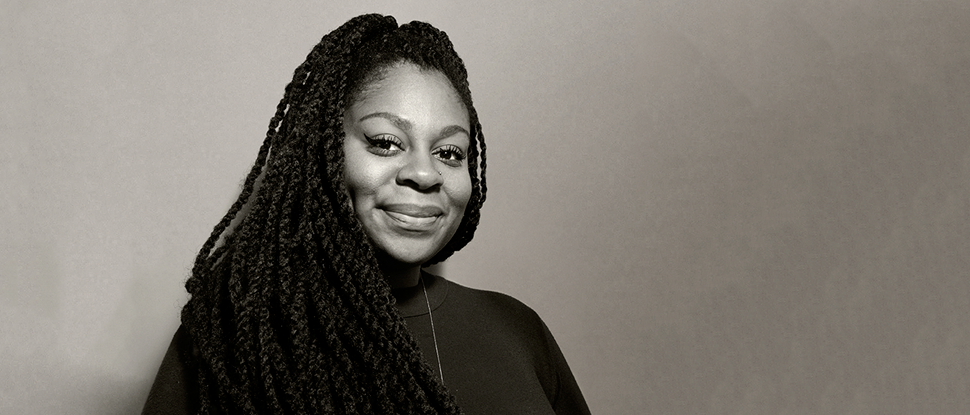
It’s all a process: Chapters 21-24 and Epilogue
The final few chapters of Becoming are so inspirational that I immediately want to jump up and campaign for slow and steady change in every possible area of my life. We follow the progress and the success stories of Let’s Move!, Michelle’s campaign to raise a generation of healthy American kids, as well as learning about the conception of her leadership and mentoring programme that strove to pay attention to young women . ‘I knew from my own life experience that when someone shows genuine interest in your learning and development, even if only for ten minutes in a busy day, it matters …especially for women, for minorities, for anyone society is quick to overlook.’ Michelle also says, more than once, that having been in multiple rooms where she’d been the only woman of colour, or even the only woman, she needed to ensure that others like her were coming up behind her. Those of us lucky enough to know how important mentorship can be in our own lives should take note of this; I know I certainly will.
As Michelle says, even taking ten minutes out of your busy day to talk to someone coming up behind you might not mean much to you, but can mean the world to them. With this in mind, I’m going to use the free time that I have to mentor, and to talk and to listen to, the young people I’m fortunate enough to encounter as part of my job, and my writing.
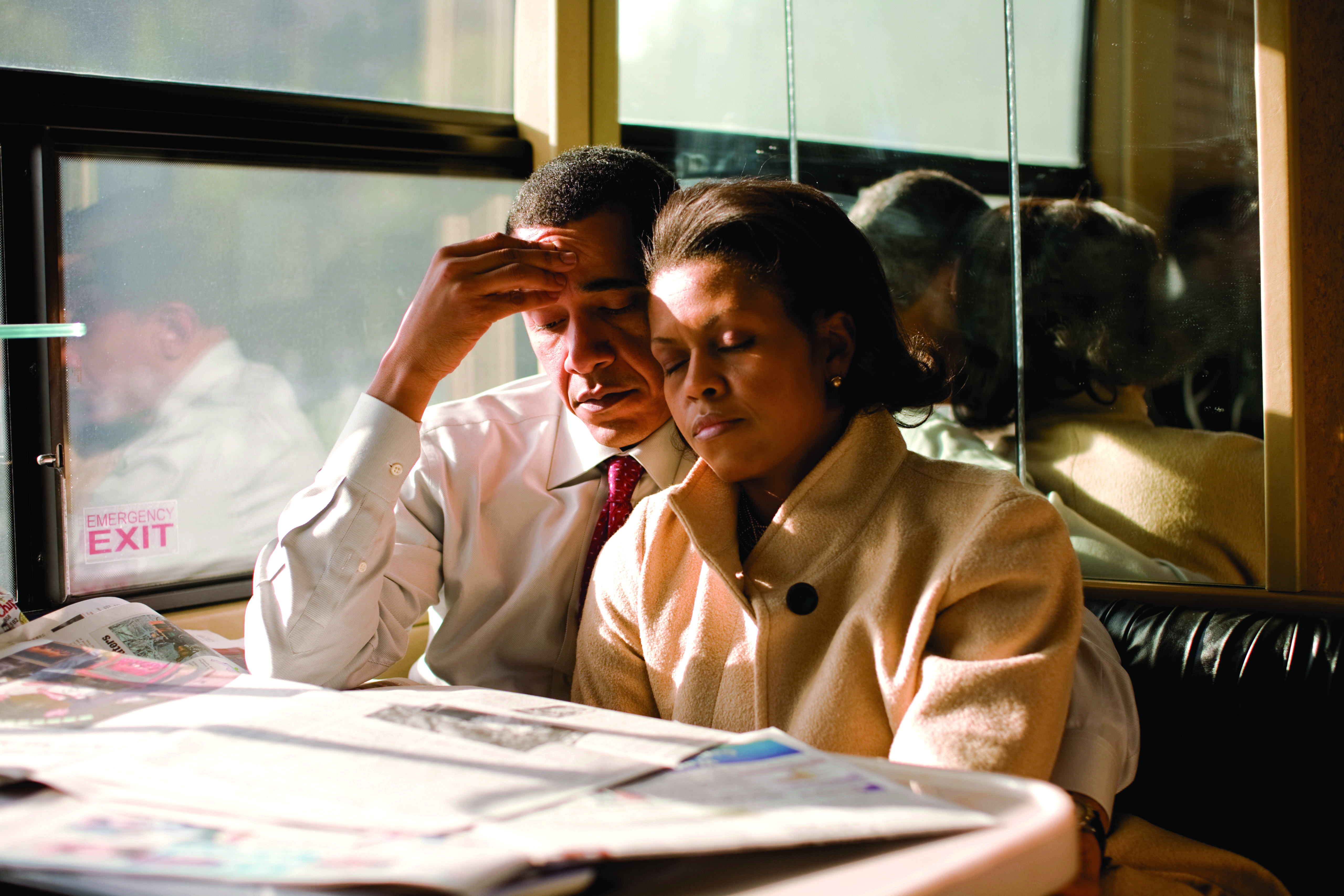
As motivating as this book is, as it comes to a close, we go through the process of the Obamas leaving the White House and the election that preceded their departure. There are painful tragedies, too. Michelle speaks about the failure of Congress to pass a single gun control measure. She laments the shooting at Sandy Hook, as well as countless murders of young black men at the hands of American police, also the racially motivated shooting at an African Methodist church known as Mother Emanuel. And while being told by so much of the American press that they, the Obamas, should feel responsible, ‘We lived with it as a family, and we lived with it as a nation. And we carried on, as gracefully as we could.’ Michelle says, and you can almost hear her sigh.
And so from Michelle, through Becoming, we have learnt many lessons; we have understood how dignity, grace and knowing our self worth are some of the best tools in our arsenal. We have learnt to listen, to be open, to be real, and to be humble. ‘I’m an ordinary person who found herself on an extraordinary journey.’ she tells us.I’ll leave the final teachings of the book for you to enjoy for yourselves, but as Michelle says in the last few pages: ‘It’s all a process, steps along a path. Becoming requires equal parts patience and rigor.’ And as I finish this live-review, it’s Michelle’s conversation with her piano-teaching aunt Robbie that’s playing back in my mind.
“How can you be mad at me for wanting to learn a new song?”
“You’re not ready for it. That’s not how you play piano.”
“But I am ready. I just played it.”
“That’s not how it’s done.”
Thank you for reading
Join in the conversation with @penguinUKbooks and @candiceC_W and follow with #IAmBecoming
Queen Elizabeth is human too: Chapters 19 - 20
Updated at 4:00 pm GMT
It’s in the first half of Becoming Us, the third and final section of Becoming, that the main learnings from the struggles of Michelle’s life help her to deal with this new-found fame, if it can be called that. She writes about being the only African American First Lady to set foot in the White House, understanding that she was ‘”other” almost by default. Although aware of her difference, she was still humbled and excited, ‘but not for one second did I think I’d be sliding into some glamorous, easy role. Nobody who has the words “first” and “black” attached to them ever would.’ But, despite what we saw, the names she was called, the way the press attacked her, questioning her right to be there, Michelle managed to find a way to remind herself of who she was, and a way to keep telling herself that she was enough. ‘Confidence, I’d learned then,’ she writes, ‘sometimes needs to be called within.’
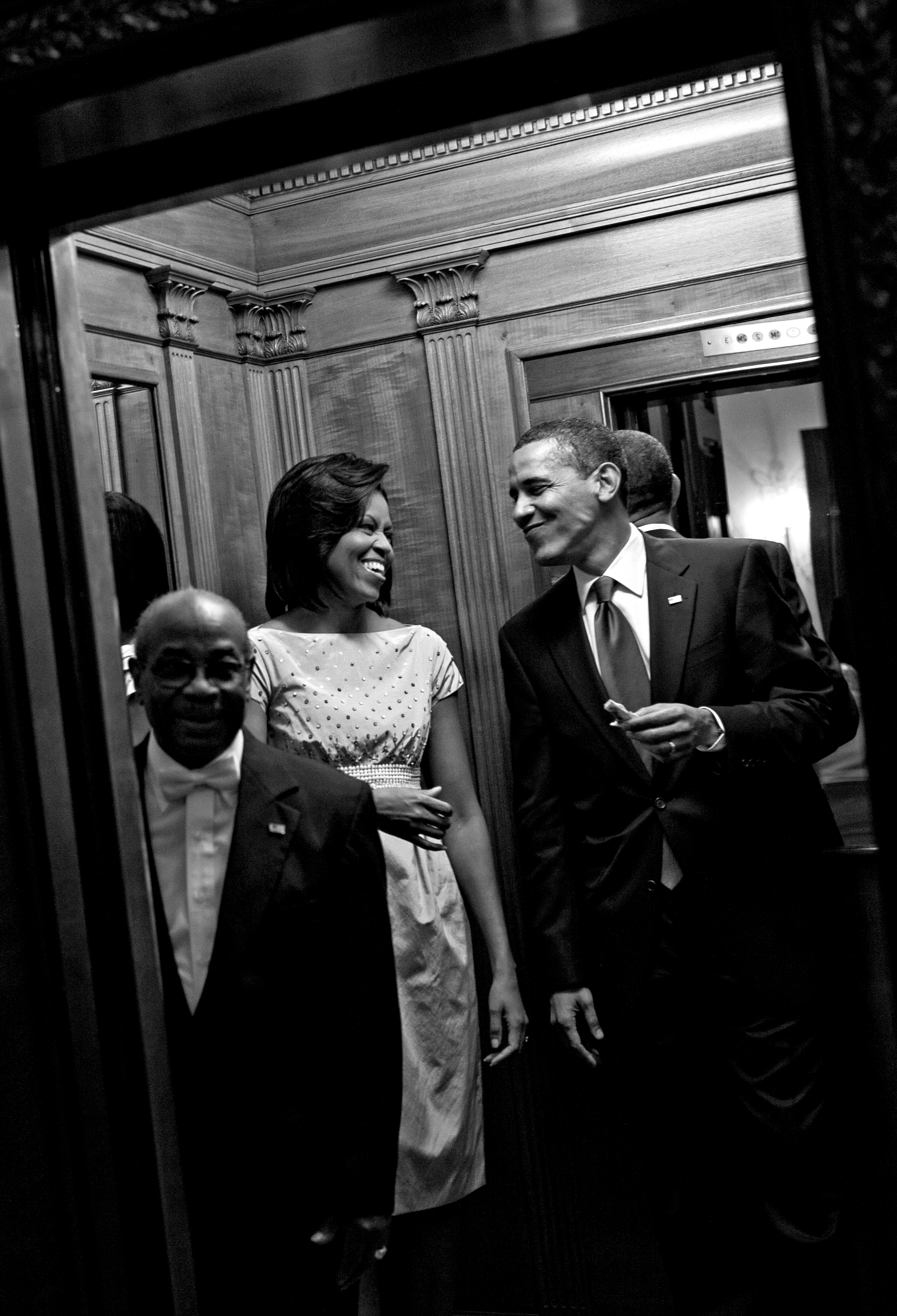
As Michelle describes life living in the White House, from the constant, often oppressive security detail, to having to pay for your own groceries, even if certain items have been flown in from overseas because Barack casually mentioned to the chef that he liked them, you begin to understand this almost unbelievable bubble that the family had found themselves in. But, in classic pragmatic Michelle style, she encourages her daughters to continue to live life the way they would have done if circumstances hadn’t brought them to this place; ‘yes, you can throw balls in the hallway, …yes, you can rummage through the pantry looking for snacks.’ More than anything, it’s a reminder that we should be humble.
Truly though, what can be more humbling than meeting the Queen of England in the literal palace that is Buckingham, while accompanying Barack on a state visit? Michelle describes having to actively will herself in her own head to ‘stop processing the splendor of the setting’ while sitting opposite an icon to many. Instead, she reminded herself that ‘the Queen is a living symbol and well practiced at managing it, but she was human like the rest of us.’
For those of you who, like me, can meet someone and immediately feel dwarfed by their status, or their talents, or by how many followers they have, say it after me: ‘they’re human, just like I am.’ This is how I will become less of a wide-eyed mute next time I meet an author I admire. If Michelle can remember this when she meets the actual Queen of England, you’ll have no problem being star-struck when you see your favourite Instagram influencer in front of you in the queue for coffee.
Female, black and strong: Chapters 17 - 18
Updated at 3:00 pm GMT
*taps mic* Thank you all for coming to my TED talk. I would like to talk to you all today about the strong black woman. I would like to ask you why she is seen as angry. What lens has allowed for this tarnishing of a whole race of woman? I would like to remind you that women, all women, should be able to express whatever emotion they’re feeling; sometimes this emotion will be anger, and every time, this emotion will be justifiable. I would like to ask you why black women have been dubbed angry, even when they’re not, and I would like you to consider what it does to a person when they express a valid emotion and have it used so negatively and pejoratively against them?
As Michelle says, ‘It’s remarkable how a stereotype functions as an actual trap. How many “angry black women” have been caught in the circular logic of that phrase? When you aren’t being listened to, why wouldn’t you get louder? If you’re written off as angry or emotional, doesn’t that cause more of the same?’
What’s the lesson here? Black women get angry, and we’re allowed to. We’ve been carrying pain for long enough. That’s the lesson here.
Identity and politics: Chapters 12-16
Updated at 2:20 pm GMT
‘It turns out that even two committed go-getters with a deep love and a robust work ethic can’t will themselves into getting pregnant.’ Michelle tells us, matter of factly. And then, she goes on to tell us that ‘A miscarriage is a lonely, painful and demoralizing almost on a cellular level. …What nobody tells you is that miscarriage happens all the time to more women than you’d ever guess...’. Talking seems to be the thing we need to take from this. While we shout about, Tweet and choose the best Instagram filter to broadcast our achievements, we don’t tend to signpost our failures, though obviously that’s not necessarily the best way to express when things don’t work out. But, we know that we do need to talk, to someone, when we don’t have a handle on things that we’d like to be in our control.
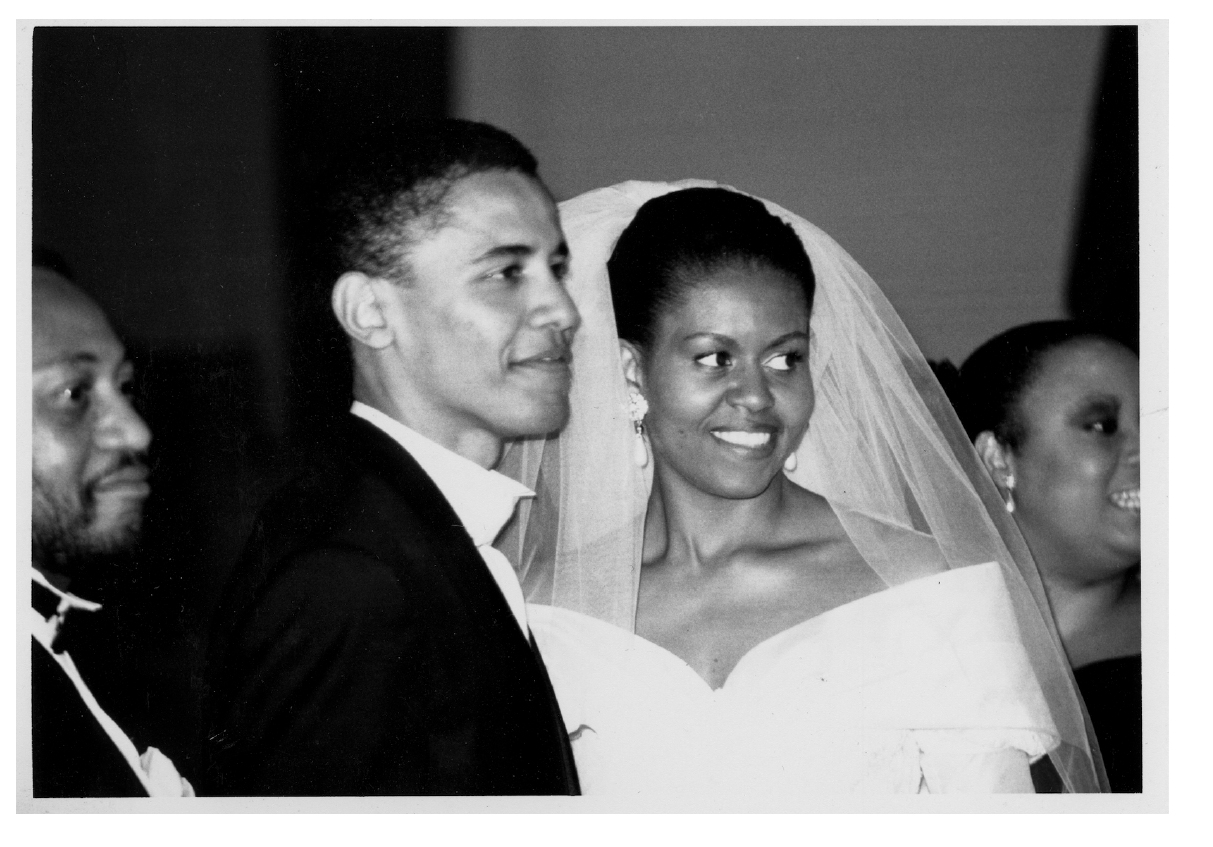
This is something that I know I need to become better at. For a long time, I was barely surviving as the strong black woman, this self-contained mythological being that held her own pain while absorbing the pain of others. You simply stop seeing yourself as human when you deny yourself your own humanity. It was a mixture of my upbringing, my culture, and good old pride that stopped me from being honest about the things that were hurting, but once I was able to cut into the mainly funny WhatsApp groupchat I have with four of my best friends and say ‘I feel really sad, actually?’ a lot changed for me.
Talking does help. Opening up and being able to put your woes into words (in either a restrained, calm, collected way, or even a barely-making-sense-but-giving-general-keywords way) does help. Talk to a friend, while remembering that your friends aren’t trained therapists. On therapists, Michelle opens up and tells us that, although Barack was reluctant, they went to couples counselling after his pre-Presidential campaigning stretched the family unit so tautly that his absence was affecting the whole family, including two new additions, Malia and Sasha.
Mainly, in these charged, fascinating and pacy chapters, Michelle discusses the lead up to the presidential race; ‘The political world was no place for good people.’ She said to a group of Iowans at her first solo campaign event, telling them that she’d been conflicted about whether or not Barack should run at all.
As she tells us about the machinations and personal implications of the race, she talks about it not just in the context of what it meant for Barack, but in the context of how she was seen, and what her role was. She couldn’t ignore the fact that her identity had been warped completely. Why had she, a stalwart of many communities who’d campaigned for, and been working towards, social change, been reduced to a ‘Harvard graduate’ by the American press? What does this tell us that we need to become? We need to become people who, as we move through life, relationships, work, we can remember who we are and what our contributions mean. We are all able to carve out our own identities, and it’s important that we hold on to why they matter.
Love and loss: Chapters 9 – 11
Updated 12:30 pm GMT
As Becoming Us begins, we begin to fall in love with Barack a little bit. Michelle describes him as spending his money largely on books, ‘which to him were like sacred objects, providing ballast for his mind.’ I’m pretty sure we can all relate. One night, when she wakes up and sees her then boyfriend staring at the ceiling, Michelle asks him what’s wrong, and instead of the predicted ‘our relationship’ or ‘the loss of my father’, Barack replies ‘Oh… I was just thinking about low income equality.’
It’s not just Barack who feels a deep need to redress social imbalance; Michelle describes, more than once, an unyielding yearning to work towards what is right, and what will better the world. She recalls reading a National Law Journal survey from the time that noted that ‘African Americans made up not quite 3% of all associates and less than 1% of all partners.’ She pushed her firm to consider law students coming from other state schools and historically black colleges. She asked her firm to look at how candidates had used the opportunities life had afforded them, rather than recruiting those who had been able to make it up an elitist academic ladder.
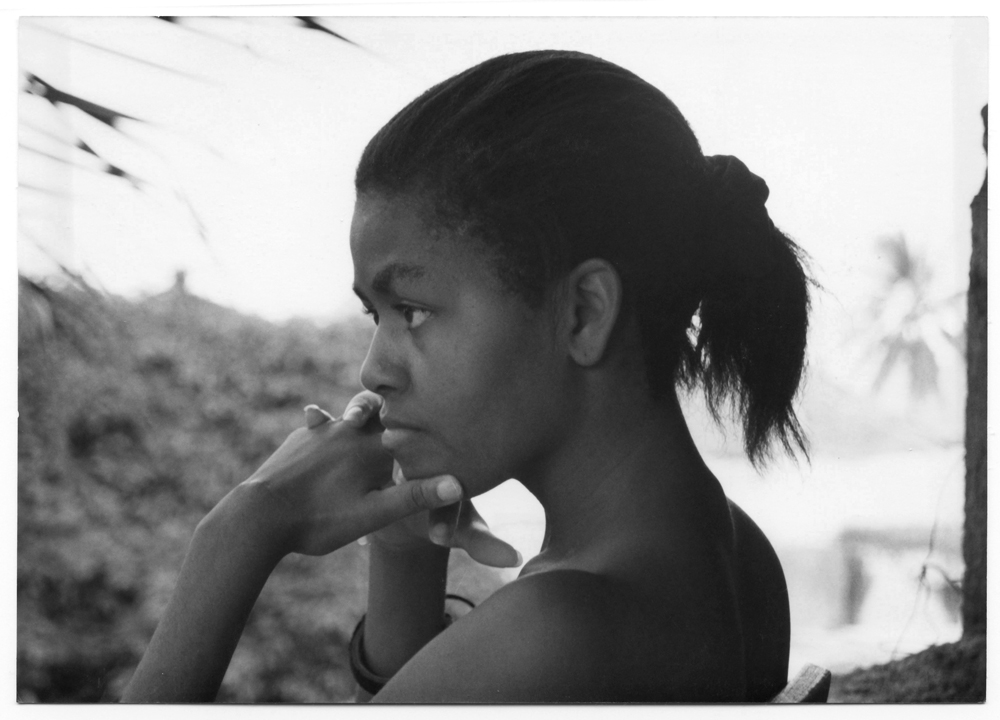
There’s a lesson here: whatever field you may be in, if you see that a change needs to be made (and I’m guessing whatever field you might be in, it does), having conversations around how even the smallest changes can be put into place can ensure that the generation coming up below you are important, and might mean that the status quo is challenged. I’m not recommending that you walk into your boss's office and demand that your company should only recruit people who are anti-establishment, but you get the point.
Another reminder that Michelle is, like us, human, comes in the form of failure when she’s trying to advance her career. This failure serves to remind us that sometimes, that’s just what happens, and that you’re forced to become your best self when you know what it’s like not to win. As much as these chapters are about Barack, and about their growing love that sees him propose in a very artful way, we learn about how Michelle is forced to navigate loss and grief; losing two people close to her in quick, brutal succession. She puts it best when she says ‘The lesson there was simple: Life is short and not to be wasted.’ If that’s not a word to the wise, I don’t know what is.
The Princeton years: Chapters 6 - 8
Updated at 10:30 am GMT
Attending Princeton is as challenging a section of Becoming as you would expect. ‘Princeton was extremely white and male. Men on campus outnumbered women almost two to one. Black students made up less than 9 percent of my freshman class.’ What follows is a big lesson in how to find your people in an institution and a space that doesn’t really have you in mind. And even when you find your people, when you’re different, you’re still acutely aware that this system isn’t set up for you. As she moves through her Princeton years, Michelle touches back on her early childhood, remarking that learning that your new white, male, privileged peers didn’t have the same obstacles as you, and had various legs-up in this world, is akin to standing on a stage, ready to play a piano recital, realising that the instrument you’d learnt on had broken keys and looked nothing like the one in front of you. ‘Your world shifts, but you’re asked to adjust and overcome, to play your music the same as everyone else.’
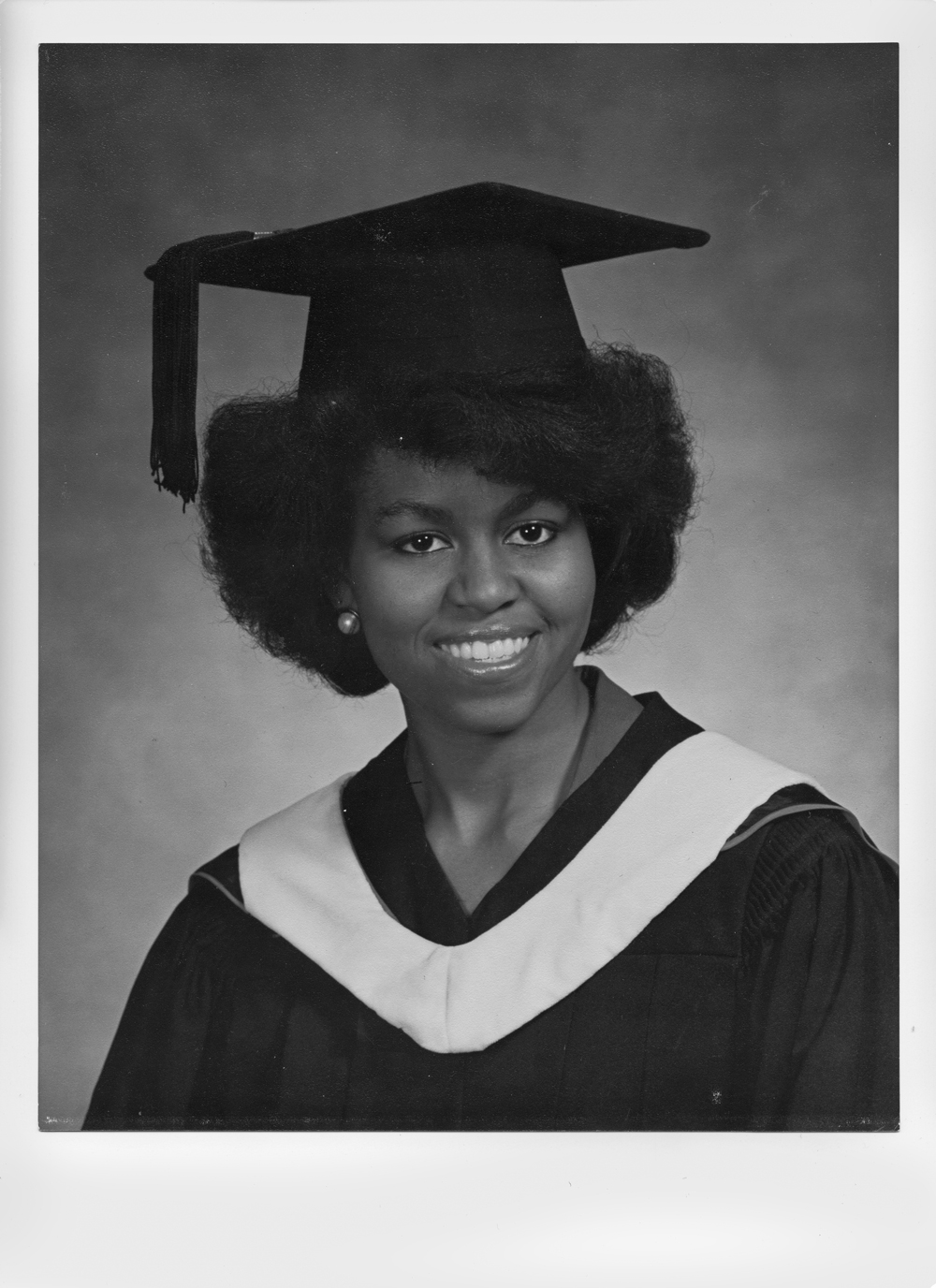
These are hard chapters to read in that they’re reminders that yes, minority and underprivileged and underrepresented people rise to these challenges all the time, ‘but it takes energy to be the only black person in the lecture hall or one of a few non-white people trying out for a play.’ But, as Michelle learns to navigate this, through hard work and surrounding herself with people she can relate to, it’s sharing a dorm room with her messy friend Suzanne, whose chaotic ways weren’t going to change, that I realise how I need to think about becoming my best self through acceptance. ‘I see now that she provoked me in a good way, introducing me to the idea that not everyone needs to have their file folders labeled and alphabetized, or even to have files at all.’
You wouldn’t think it if you saw my desk, but I am a neat freak; my flat is pristine, I like order else I’ll start having palpitations, and if you walk into my flat wearing your shoes I will call 999. I start to hyperventilate at the idea of sharing my home with someone else, and get low-key agitated when I go away for the weekend with friends and they don’t want to stick to my agenda. But, as Michelle says, ‘There are simply other ways of being.’
As we move out of ‘Becoming me’ and into ‘Becoming us’, the only thing I’ll give away is that Michelle was not impressed with Barack when they first met; she was annoyed that he was late to his first day in her office, and thought very little of the secretaries in her building saying that on top of his supposed brilliance, he was cute. ‘I was skeptical of all of it.’ Michelle says. ‘In my experience, you put a suit on any half-intelligent black men and white people tended to go bonkers.’ How will I become my best self, as Michelle softens to let this ‘odd-named’ man in? I’ll have to follow Michelle’s similarly not-easily-impressed lead…
‘Failure is a feeling long before it’s an actual result’: Chapters 3 - 5
Updated 9:30 am GMT
After reading this, I am going to become someone who never moans about getting up at 8am and commuting 40 minutes to work ever again; as we embark on Michelle’s teenage years, she recalls beginning ninth grade at the ‘striking and modern’ Whitney Young, a high school that was ninety minutes away and required her to get out of bed at five o’clock in the morning. Such endearing self-doubt lies within these chapters that document Michelle’s formative teenage years. Beyond arranging her first kiss on the phone with a boy down the way (fun, relatable), being accused of ‘talk[ing] like a white girl’ by a distant cousin (mortifying, also relatable, to me at least), it’s in academia, and the worlds it opened up to Michelle, that reminds me that being human and being sensitive to failure and to criticism is so deeply affecting, even when you’ve come from a stable, steady and loving family.
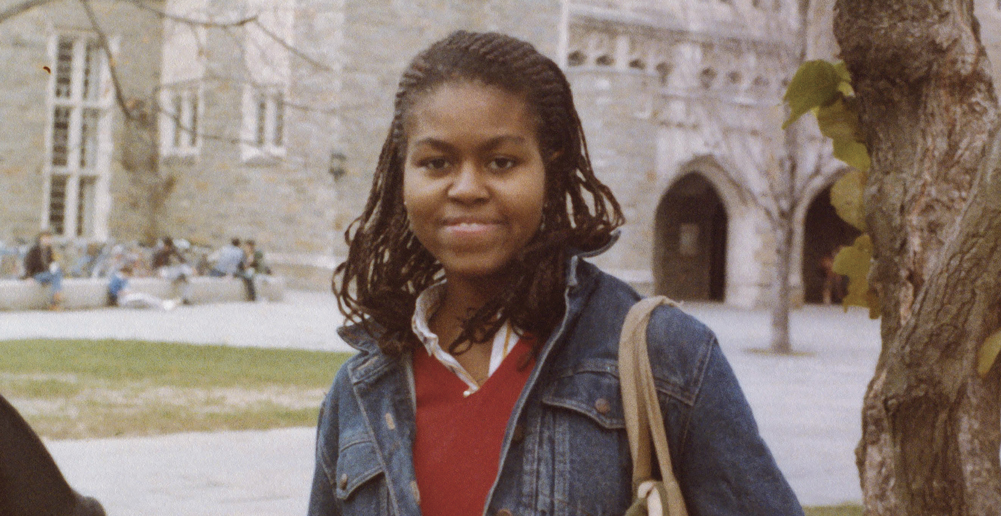
The thing that I’ll take away from this section of the book is why it’s both important -- and not – to become stuck only on the negative of what someone in a position of authority you respect tells you, about you. When Michelle goes to meet her assigned school college counselor in her senior year, she is told, quite simply: ‘I’m not sure ..that you’re Princeton material.’ A throwaway judgement based on nothing but prejudice that can, and will, have an impact within the recipient. ‘Failure is a feeling long before it’s an actual result’ Michelle reminds us. Most of us have been told we aren’t enough, or words like this, in some form, and while these judgements swamp our minds, and undoubtedly bog us down, they can also be the drive that pushes us to succeed. This reminds me of wanting to study English literature at degree level, but my tutor telling me that I’d be better off doing Media studies, and that they’d only sign off my UCAS application if this was the degree I’d apply for. I bit my tongue and did as they said, knowing that one day I’d become bigger than what my tutors told me I’d be.
Michelle writes that by now, she’s met many extraordinary and accomplished people on her journey; from world leaders to professors, by way of artists and writers. ‘What I’ve learned is this:’ she tells us, ‘All of them have had doubters.’ And what we will all learn, as we go on in whatever our careers and life choices are; is that by becoming the best version of ourselves, by having faith in the uniqueness that we have to offer, and having confidence in what life has taught us, by having faith in our own story, we can prevail. It’s a hard thing to remember when we feel rejected, or like we’re not good enough, but it’s often the dragging ourselves up when we face this self-doubt that reminds us that we are enough.
The beginning: Chapters 1 & 2
Updated 7:00 am GMT
‘The sound of people trying… became the soundtrack to our life.’ are among the opening words of Becoming. It is this trying that acts as a motif to the first two chapters of the book that, instead of starting at the very beginning – the birth of this brilliant woman that is just as much of an icon as her husband – sees Michelle as she begins to navigate what life is, and her - and her family’s space within it. We already know that Michelle Obama, nee Robinson, came from humble beginnings, growing up in a small apartment in the South Shore neighborhood of Chicago, but what we’re shown as the book begins is the real texture of this living, and how it shapes a young, black child understanding what the world is, against the backdrop of the death of the Kennedys and the assassination of Martin Luther King Jr.
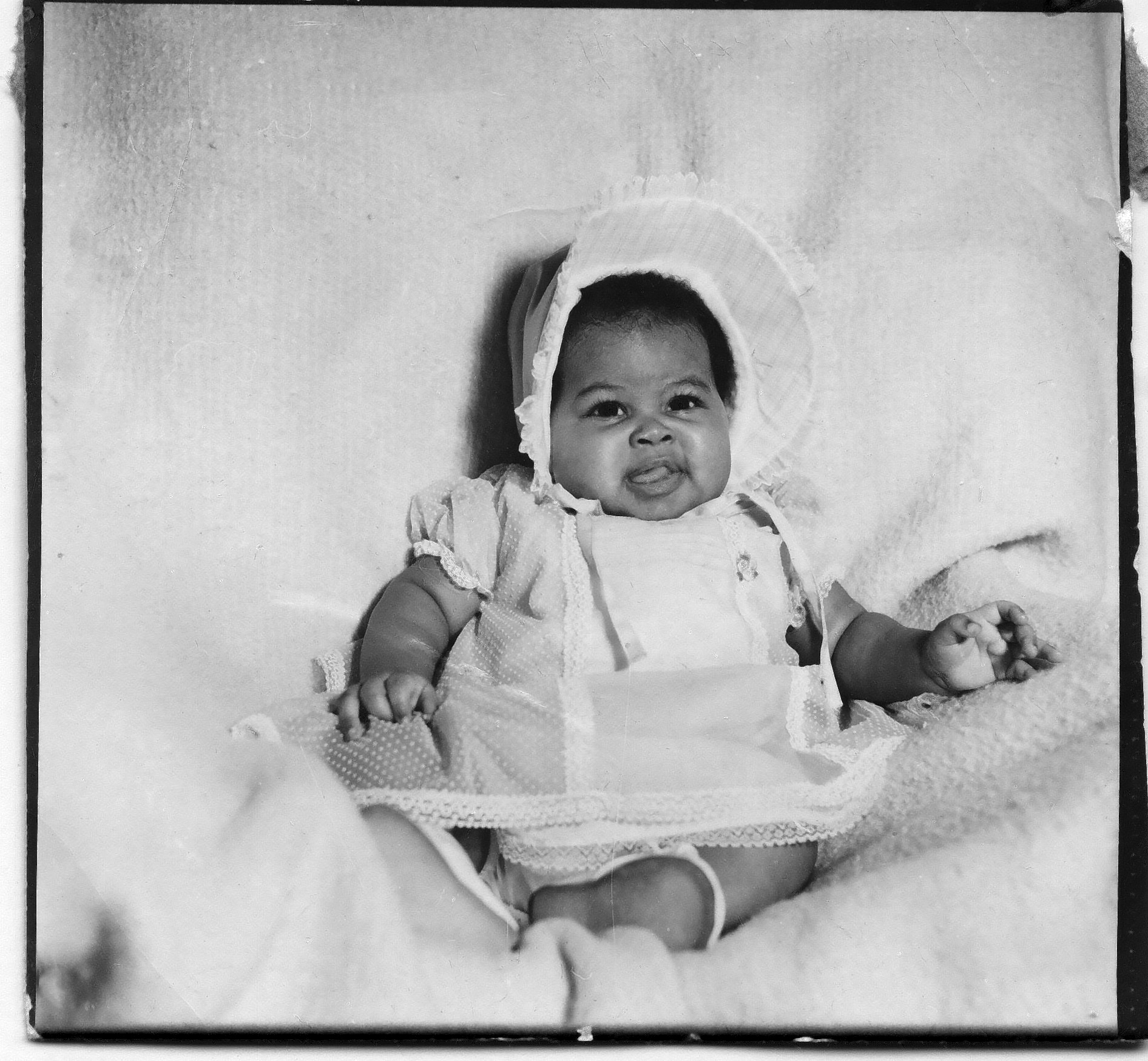
We see that while the politics of America are shifting in inexplicable ways, family is what matters. Michelle and her parents, Fraser and Marian and her brother Craig, all live in a small apartment in a larger house owned by her Aunt Robbie, a piano teacher, and her husband Terry. Her parents live in the bedroom, and the room that Michelle shares with her brother is technically a living room, divided by cheap wooden panelling constructed into a makeshift partition. It’s through Michelle’s determination to learn piano that we can take our first lesson in becoming our best selves; ‘the keys on Robbie’s piano had a subtle unevenness of color and shape, places where bits of the ivory had broken off over time, leaving them looking like a bad set of teeth.’ The setting might not necessarily be perfect, but if we’re determined to do something, we must adapt ourselves to make it work. As we go on to learn about these ‘epic and trying’ piano lessons, an argument Michelle has with her Aunt Robbie is a lesson in patience, and in taking our time:
“How can you be mad at me for wanting to learn a new song?”
“You’re not ready for it. That’s not how you play piano.”
“But I am ready. I just played it.”
“That’s not how it’s done.”
This is how I'm going to become my most patient self when I feel that inevitable frustration at wanting to move things forward even when I might think I'm ready.
It’s in chapter two that I realise we're in for a wildly emotional ride, and that even though I think I'm a patient person, I've got nothing on Michelle's dad. Michelle and her family take what should be a pleasant enough trip to the suburbs, but it's one that leaves a mark both physically, and deep in her memory. Through this we can see, fully formed, where her quiet, composed understanding of adversity comes from. A trip to visit family friends, ‘the lightest-skinned black people we’d ever met’, in the mainly white suburbs ends horribly. They’d driven there in her father’s Buick, a car that was essentially an extension of him, and when they go to leave, ‘…someone had scratched a line across the side of his beloved Buick. It had been done with a key or a rock and was in no way accidental.’ But, instead of kicking up a fuss, with quiet dignity, they all get in the car and drive home. They don’t try to find out who did it; instead, they don’t visit the suburbs again, and her dad simply gets the car fixed. I doubt that this will be the last time we see 'they go low, we go high’ at play...